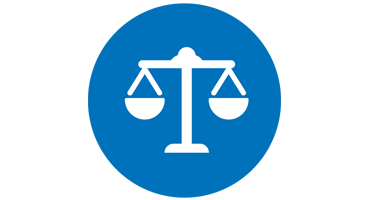Category: Screening for domestic violence
Screening tools for attorneys and custody evaluators (Multnomah)
The team realized that domestic violence was going undetected in many cases. A subcommittee was tasked with finding and developing screening tools for court-related professionals. Early feedback on the first tool, specifically for attorneys, has been favorable, with attorneys reporting an increased awareness and detection of domestic violence in their cases. Also, tools for other professionals, notably custody evaluators and mediators, will be forthcoming soon.
Read MoreHelp desk screening/triage process
To improve the availability of child-related relief in protection orders, identification of cases where the parties share children is necessary. By using its already existing help desk, the team developed a screening questionnaire that identified when concerns regarding children were present and referred the survivor to appropriate resources. Also, an alert card was created, to be provided to the survivor, when the parties had shared children; this alert card notifies any others helping the survivor with the protection order process to be aware of child-related issues and the possibility that a request for child-related relief may be needed and appropriate.
Read More
